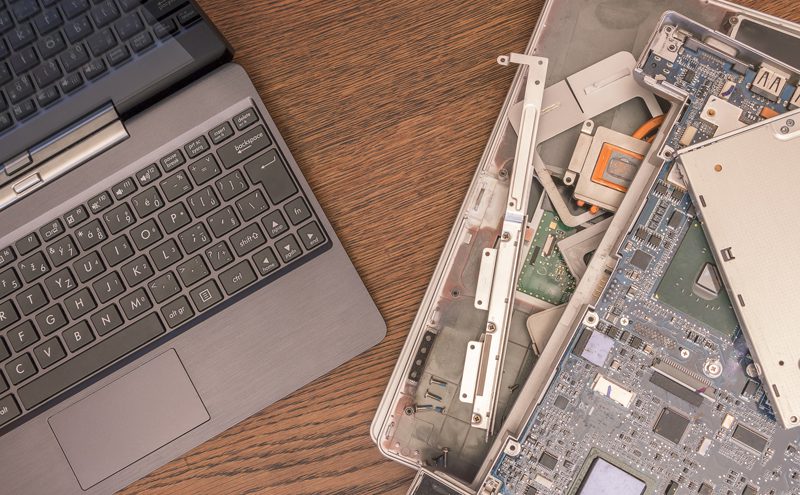
7 in 10 people in the UK are concerned about personal security data breaches from recycling old and unused electrical products
Personal data security fears are preventing households in the UK from disposing of old, broken and unused electricals correctly according to a new survey by REPIC, the UK’s largest WEEE producer compliance scheme.
69% of people questioned admitted to having concerns about their personal data being breached. A third of these admitted they were more likely to keep hold of old electricals as a consequence.
Adding to the issue, more than a quarter (26%) of those questioned didn’t know how to delete their personal data, whilst a third (33%) didn’t think that they needed to, the research revealed.
There is also a telling generation gap in attitudes towards data security, according to the survey.
Over three quarters (76%) of 16-29 year olds are most worried about the security of their private information, whilst only 59% of people aged 60 and over voiced it as a concern.
Across the age groups, 30-44 year olds, were most likely to never or not always delete their personal data from electronic devices before disposal.
“Data can be deleted, devices cannot,” says REPIC CEO Mark Burrows-Smith. “These results are really telling in what drives people’s recycling behaviours and the need for increased education around how householders remove personal data before disposal.
“The Internet of Things means that connectivity is the norm and with more and more people synching their personal data to electronic devices, it is clear that there is a real risk that old or unused electricals are being stockpiled due to fear and mis-education.”
But there are also promising signs in the research when it comes to overcoming the wider barriers to recycling.
In 2016, 31% of respondents cited lack of knowledge about where to recycle their electronic devices and gadgets. This year the figure has dropped to 21%. More people than ever are aware their devices can be recycled, with just 17% unaware compared to 28% in 2016.
The survey also reveals a move by the general public to donate, sell or pass on electricals that are still in good working order—suggesting that minimising waste and keeping working products in circulation is increasingly on the public agenda.
Respondents are most likely to give electronics and gadgets to a friend or family member (39%), sell them online (34%) or take them to a charity shop (31%). Although a third of people also admit to keeping them in the garage, shed or under the stairs.
“Despite the barriers to recycling, people in the UK are aware of the consequences and cite reducing waste sent to landfill as the key driver for achieving their recycling responsibilities,” adds Mark Burrows-Smith.
“Overall the results paint a an optimistic picture that attitudes and behaviours are moving in the right direction – yet, as always, it is clear from these findings and the issues the WEEE industry is facing, that we must adapt to changing consumer behaviours to ensure this continues on the right trajectory.”
Source: survey of 1,107 people conducted in September 2017 on behalf of REPIC.







